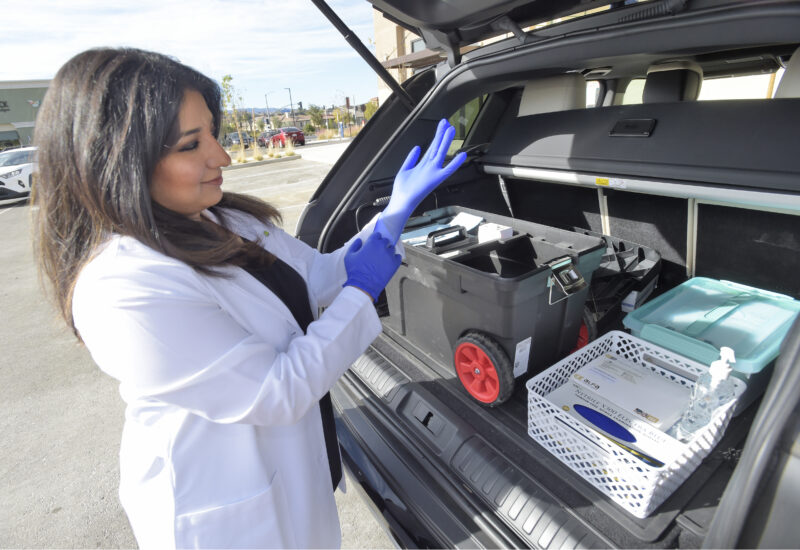As the winter surge in cases continues, COVID-19 testing along with monoclonal antibody treatments have become harder to come by.
Locally, COVID-19 testing lines could be seen wrapping through and out of parking lots, while few providers offer antibody treatments.
After contracting COVID-19 herself in the midst of last year’s winter surge and learning firsthand the struggle of finding adequate testing and treatment, Dr. Harleen Grewal knew there had to be a way she could help others.
As a board-certified pediatric dentist whose husband, Yuvi, is a board-certified neurologist, once she beat COVID-19, she immediately sprang into action.
The Grewals first began offering mobile rapid COVID-19 testing, where they’d drive to people’s homes to do testing for them, before then beginning to offer the monoclonal infusion through Mind Body Infusion, the holistic health center they run in town.
Monoclonal antibody infusions are approved U.S. Food and Drug Administration for emergency use to treat patients with mild to moderate COVID-19 symptoms, helping to prevent severe symptoms and decreasing the risk of hospitalization.
Treatment is available to not only those who have tested positive but also those who have been exposed to COVID-19, according to Grewal.
Nurse Practitioner Sonja Leahy travels across the SCV to administer infusion treatments in-home, Grewal said.
“We feel really happy that we’re helping people, and people actually have access to this treatment,” Grewal said, noting that their patients have continued to see improvement even with the emergence of variants.
In addition to the monoclonal antibody treatments, Dr. Elizabeth Hudson, an infectious disease specialist at Kaiser Permanente Panorama City Medical Center, said there are several novel treatments for COVID-19, such as Pfizer’s Paxlovid and Merck’s molnupiravir, both of which recently received emergency use authorization from the FDA.
Both of these medications are in the form of a pill that can be taken orally, working directly against the virus, according to Hudson.
“In general, for these treatments given to those who have active COVID, the earlier in their infection they get the treatment, the better,” Hudson said.
Those receiving oral medications should begin treatment within seven days of the start of symptoms, while monoclonal antibodies can be given after someone is found to be COVID-19 positive and can be given within 10 days, according to Hudson.
However, Hudson said the biggest constraint is the lack of supply of these medications, as with the monoclonal antibodies.
Additionally, Hudson advised patients who have COVID-19 should not take Ivermectin or hydroxychloroquine, as these drugs are specifically not recommended for the treatment of COVID-19 and can cause harm.









